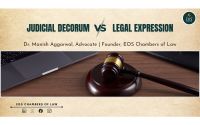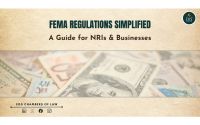Supreme Court: BCI Rules For Candidate Seeking Enrolment As

Supreme Court: BCI Rules For Candidate Seeking Enrolment As Advocate To Have Completed Law Course From Recognized College Are Valid
The Supreme Court Friday held as valid the rules framed by the Bar Council of India requiring candidates seeking enrolment as an advocate to have completed their law course from a college recognized by the top Bar body. A vacation bench of Justices Vikram Nath and Sanjay Kumar set aside an order of the Orissa High Court by which it had said the BCI cannot frame rules and add any condition for enrolment in addition to what is prescribed under section 24 of the Advocates Act of 1961.
The high court had directed the enrolment of Rabi Sahu as an advocate despite the fact that he got his law degree from a college that was not recognized or approved by BCI.
“The rule framed by BCI requiring a candidate for enrolment as an Advocate to have completed his law course from a college recognized/ approved by BCI cannot be said to be invalid, as was held in the impugned order.
“We, therefore, have no hesitation in holding that the division bench was not justified in directing the enrolment of respondent No. 1 (Rabi Sahu) as an Advocate, despite the fact that he secured his law degree from a college which was not recognized or approved by BCI. The appeal is accordingly allowed, setting aside the order dated September 21, 2012, passed by the Orissa High Court…,” the apex court said.
Analyzing the high court verdict, the bench said the HC had relied upon the 1999 judgment in the case of V Sudheer versus the Bar Council of India and said on February 10 this year, a constitution bench of the top court had opined that the 1999 verdict was not a good law.
The court said the constitution bench held that the BCI’s role prior to enrolment “cannot be ousted” , and the finding of V Sudheer verdict that it was not one of the statutory functions of BCI to frame rules imposing pre-enrolment conditions, was erroneous.
“It was categorically held that Section 49 read with Section 24(3)(d) of the Act of 1961 vested BCI with the power to prescribe the norms for entitlement to be enrolled as an Advocate and in consequence, the interdict placed by the decision in V Sudeer on the power of BCI could not be sustained. The Constitution Bench, accordingly, held that V. Sudeer did not lay down the correct position of law,” the bench said.
The vacation bench passed the verdict on an appeal of the Bar Council of India against the high court order dated September 21, 2012.
The top court had stayed the operation of the high court’s order on January 28, 2013 and issued notices to Sahu and the Orissa State Bar Council.
Both Sahu and the State Bar Council did not appear before the top court in the matter.
The bench noted that Sahu secured his law degree from Vivekananda Law College at Angul in Odisha in the year 2009 but this college was not recognised by the BCI.
It also noted that by a letter dated January 5, 2002, the BCI had directed the college to not to admit students in law courses making it clear that students so admitted will not be eligible for enrolment as as advocates.
The Bar Council of India had also informed the Orissa State Bar Council on February 28, 2011 about non-recognition of the college.
“As a corollary, the Orissa State Bar Council rejected the application of respondent No. 1 (Sahu) for enrolment as an Advocate, vide letter dated May 4, 2011,” the bench noted. Aggrieved by the decision of the state bar council, Sahu had moved the high court which ruled in his favour.
Post Categories
Featured Posts
Latest Posts
Latest Posts

Muzaffarnagar slapping case SC pulls up UP govt over delay in student counselling...
After perusing the state reply Friday the bench said it reflected that the counselling process had not been done yet ldquo It is not reflected it is not being done rdquo said Justice Oka The Supreme Court Friday pulled up...

Children Born Out Of Irregular Marriage Legitimate Muslim Law Supreme Court...
The Rajya Sabha has passed the JThe Supreme Court has noted that children born out of irregular marriages including one between a Muslim man and a Hindu woman are legitimate and therefore eligible to inherit intestate property as per applicable...

SC removes barrier allows deaf lawyer Sarah Sunny to argue in sign language interpreter...
The Supreme Court in India has started allowing sign language interpretation for hearing impaired lawyers demonstrating that not everything needs to be spoken aloud in court In a recent case a deaf advocate was permitted to virtually argue with the...

Maternity Benefits Must Be Granted Even If Period Of Benefit Overshoots Term Of Contractual...
The Supreme Court on Thursday Aug held that maternity benefits have to be granted even if the period of benefit overshoots the term of contractual employment Maternity benefits can travel beyond the term of contractual employment The court directed the...

SC Criticises Trend Of Seeking Bail Under Guise Of Challenging Validity Of PMLA In...
Article of the Constitution gives individuals the right to approach the Supreme Court if they feel their fundamental rights have been violated Supreme Court on Tuesday deprecated the trend of the accused in money laundering cases using Article...

Understanding Overseas Patients' Rights in India A Guide for International Visitors...
Introduction India has emerged as a popular destination for medical tourism attracting patients from across the globe seeking high-quality healthcare services at affordable costs While the country offers world-class medical facilities and skilled healthcare professionals it's essential for overseas patients...

Speak With Our
Get a Appointment
















